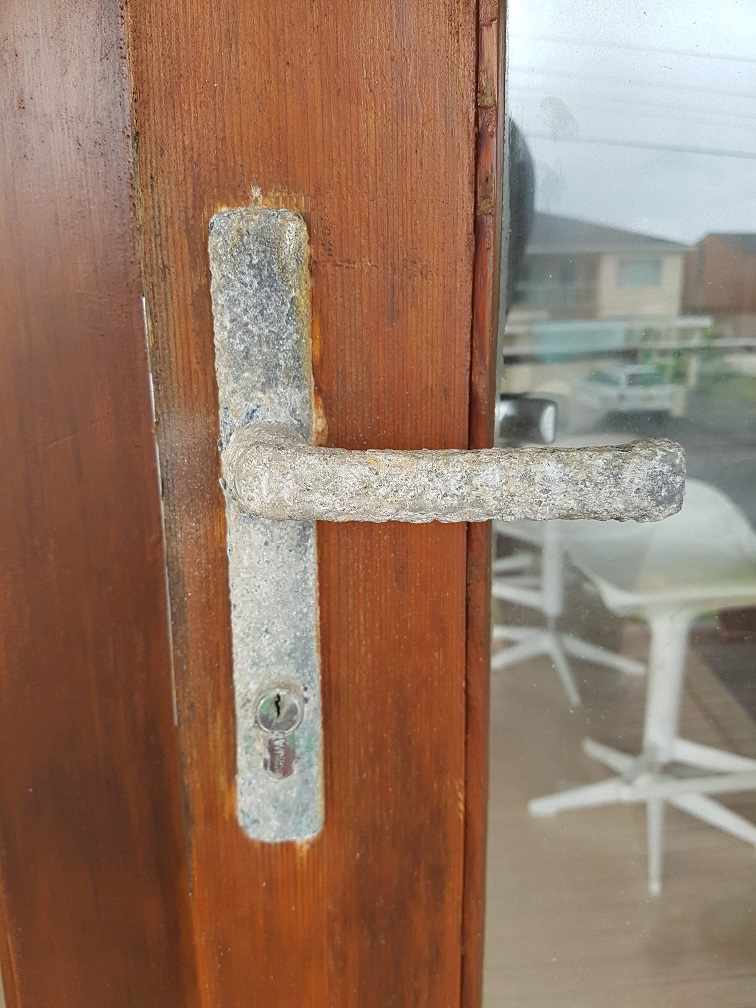Lock corrosion is a big problem for many homeowners, and while many lock brands claim they are ideal for outside conditions, not many can stand up to coastal breezes that dump highly corrosive salt over your house.
Which is the best locks for coastal areas? The best locks to cope with coastal salt air are locks made of 316-grade stainless steel. While most locks are made from various metals, the most important components of the lock you are looking for to be made from stainless are the screws, faceplate, latch, and lever furniture. The internals or mechanics of a lock are usually made is mild steel, cast iron, brass, and spring steel and the best way to protect these vital components is to lubricate with a lubricant that repels water such as Inox, WD40, or a silicon spray.

The photo above clearly shows corrosion over an approximately 10 year period. Interestingly this lever handle is actually a quality handle but it’s just not suitable to withstand coastal conditions. As a general rule, I recommend using only stainless steel handles and make sure to lubricate the internals of the lock. For the key barrel, many locksmiths will strictly say to not use WD40 in the lock barrel. This is because oil-based lubricants attract dust and clog up the lock. While I agree in principle, not using a water-repelling lubricant in the barrel will result in the key not working in the lock.
Recently I was in a brand new waterfront beach house with satin finish lever handles and they were already starting to show corrosion. It just shows how quickly salt can affect locks.
So the best advice I can give is to go to the extra expense and use stainless steel handles where possible and lubricate the lock with a water repellent lubricant.
Here is a link to my blog page with some useful information on LUBRICATING LOCKS
If you would like advice or a quote on locks for your house or unit, please give Safezone Locksmiths a call on 0473 450 000
